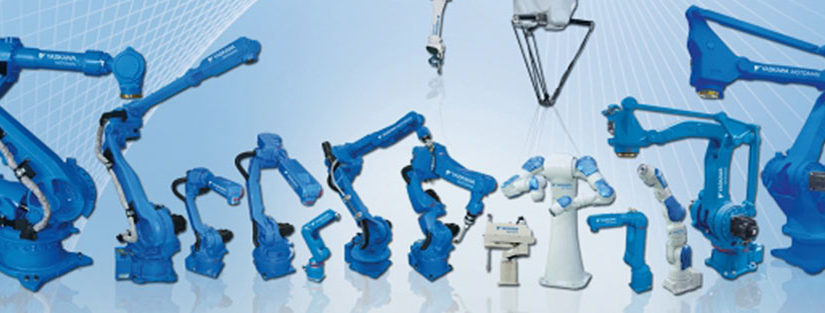
Yaskawa Electric reports stunning 150 per cent more profits with robotics and automation leading the way
Yaskawa Electric says it has achieved a staggering 150 per cent growth in net profit for the period from April to September, compared with the same period last year, according to a report on Nikkei.
Nikkei says Yaskawa’s profits for the period were $184 million, beating its own previous records.
Yaskawa, which also owns the Motoman brand of industrial robot, says most of the growth was due to increased orders for automation equipment from China, Japan and the US.
Yaskawa’s president, Hiroshi Ogasawara, says: “We received a lot of orders from local Chinese manufacturers.”
Most of those robots are now busy making smartphones and other electronics products.
Yaskawa is performed strongly in servo motors, the technology from which the robotics industry initially developed.
Now, servo motors are increasingly used inside semiconductor manufacturing equipment.
Chinese semiconductor manufacturers – backed by large-scale government support – are on course to spend $12 billion a year on equipment, according to industry association Semi.
Global semiconductor sales have reached $35 billion a month, according to another industry association called Semiconductor Industry Association.
And with new cars containing an average of 600 chips each, it’s no surprise than Yaskawa says it’s been selling a lot of automobile-related products in Europe.
“Demand for robots and other devices will rise in the future,” says Ogasawara, adding: “Automation demand among Chinese manufacturers will continue to grow.”
Yaskawa is a Japanese company, which means it is likely to benefit from the recent re-election of Shinzo Abe as prime minister.
Abe is said to be a robot fanatic, although it’s unlikely that Japan will introduce the sort of measures China has.
The Chinese government has committed more than $150 billion to strengthen the semiconductor market and related industries, especially robotics and automation, which it sees as the way to maintaining its position in global manufacturing.
One of the main aims of the Chinese government is to create a business environment in which local, domestic companies can emerge in the advanced technology sectors, such as robotics.
This is currently happening to some extent, with Siasun Robot expanding both at home and abroad, and HIT Robot Group launching its “Robotics Biosphere” initiative.
However, for the time being, it is the big, global industrial robotics leaders which are increasing their investments in China in the hope of growing their share of what is already the world’s largest market for industrial automation equipment.
Kawasaki, Kuka, ABB, and even Siemens are among the companies looking to the Chinese robotics market for massive returns, with some of them doubling their investments in their Chinese operations.
And the global growth in electric car sales is, arguably, being led by China, the world’s largest auto market.
Electric cars will change the way robotics and automation are used in production, and they will increase the demand for chips, which, in turn, will increase investment in semiconductor manufacturing equipment – all of which looks to be happening right now.
But for some in China, it might all be happening too fast. In one report, Chinese authorities were said to be concerned there might be too many clean cars on the roads.


